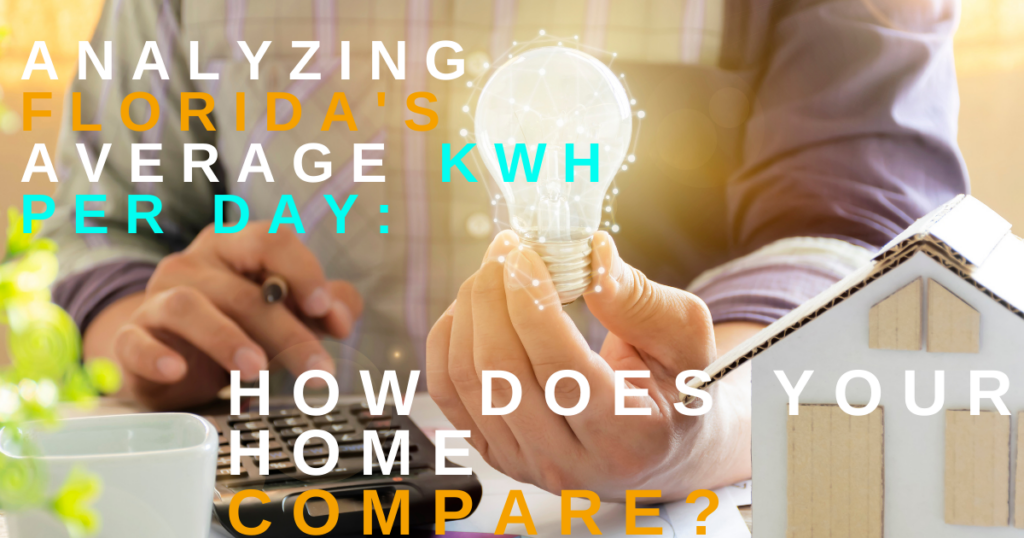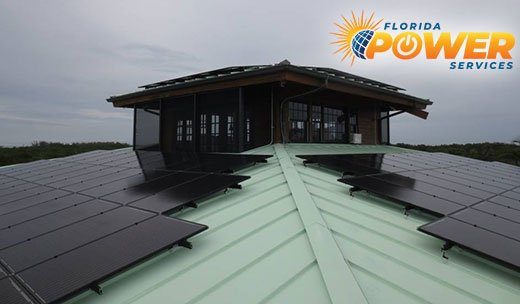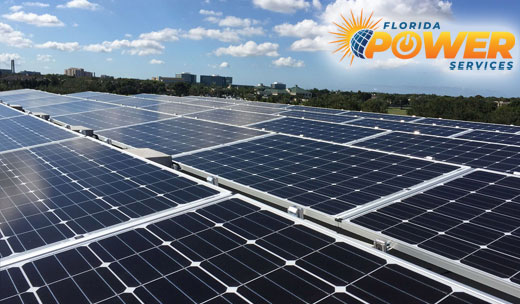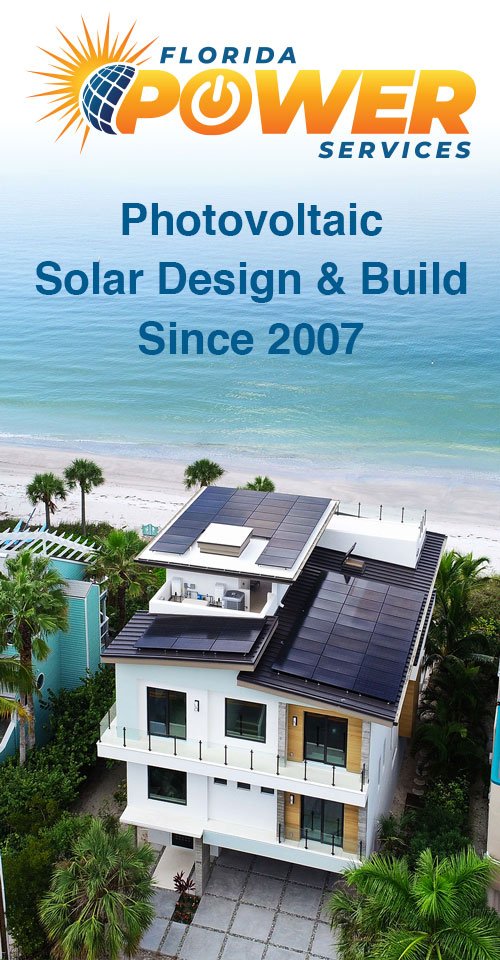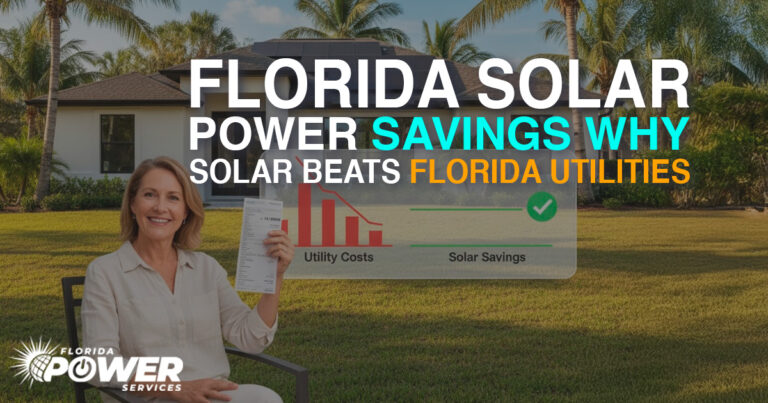In the Sunshine State, energy consumption patterns can vary significantly from one household to another. With its warm climate and abundant sunshine, Florida has unique energy needs, particularly for air conditioning and other cooling systems. Understanding the average kilowatt-hours (kWh) consumed daily can help Floridians make informed decisions about energy use and identify areas where they can reduce consumption. This blog will delve into Florida’s average kWh consumption per day, how it compares to national averages, and practical tips for managing energy use effectively with the assistance of Florida Power Services.
Understanding Kilowatt-Hours
Before diving into the specifics of Florida’s energy consumption, it’s essential to understand what a kilowatt-hour (kWh) is. A kWh is a unit of energy equivalent to using one kilowatt of power for one hour. For instance, if you have a 1,000-watt appliance running for one hour, it will consume one kWh. This measurement is critical for evaluating energy consumption in homes and businesses alike.
Average kWh Consumption in Florida
According to data from the U.S. Energy Information Administration (EIA), the average Florida household consumes about 1,200 kWh per month, translating to approximately 40 kWh per day. This figure is slightly higher than the national average, which stands at around 30 kWh per day. The reasons for this increased consumption are multifaceted, including:
- Climate: Florida’s hot and humid climate necessitates heavy air conditioning use for much of the year, leading to higher electricity usage.
- Home Size: The average size of homes in Florida tends to be larger than the national average, which typically results in increased energy needs.
- Population: With a growing population, energy demands continue to rise, contributing to overall higher consumption rates.
Seasonal Variations in Energy Consumption
Energy consumption in Florida is not uniform throughout the year. During the summer months, particularly from June to September, residents can expect their daily kWh usage to spike significantly due to air conditioning needs. During these months, it’s common for households to use anywhere from 50 to 70 kWh per day. Conversely, in the cooler winter months, energy usage may drop to about 25 to 35 kWh per day as heating demands decrease.
Factors Affecting Your Home’s Energy Consumption
While the average kWh consumption provides a useful benchmark, it’s important to consider the specific factors that may affect your home’s energy use:
- Home Size and Design: Larger homes require more energy for heating and cooling. Well-insulated homes may see reduced energy consumption compared to those that are not.
- Appliance Efficiency: The age and efficiency of your appliances play a crucial role in your daily energy consumption. Upgrading to Energy Star-rated appliances can lead to significant savings. Learn more about Energy Star products here.
- Lifestyle: The number of occupants in your home, their daily routines, and the use of electronics can all impact energy consumption. For instance, households that work from home may consume more energy than those that do not.
- Seasonal Adjustments: Florida’s energy consumption trends may vary based on seasonal factors. For example, heavy use of cooling systems during the summer months can significantly raise energy consumption.
Comparing Your Energy Use
To determine how your energy consumption compares to the average kWh per day in Florida, you can start by checking your electricity bills. Here’s how you can analyze your consumption:
- Review Your Electricity Bill: Your monthly bill will typically show your total kWh usage. Divide this number by the number of days in the billing cycle to find your daily average.
- Track Your Daily Usage: If you’re interested in a more granular analysis, consider using a smart meter or home energy monitor to track your daily usage in real time. Resources on smart meters can be found here.
- Calculate Energy Usage by Appliance: Identify which appliances consume the most energy in your home. The U.S. Department of Energy provides a comprehensive guide on estimating energy use by appliance, which can be found here.
The Role of Florida Power Services
Florida Power Services is committed to helping residents of Florida understand their energy consumption and find ways to improve efficiency. They offer various resources and services tailored to meet the unique energy needs of Floridians. Here are some key offerings from Florida Power Services:
- Energy Audits: Florida Power Services provides comprehensive energy audits to help homeowners identify energy inefficiencies in their homes. Their experts can assess your energy use and suggest improvements tailored to your specific needs.
- Energy-Efficient Solutions: They offer a range of energy-efficient solutions, including HVAC upgrades, insulation improvements, and smart home technology. These solutions can significantly reduce your overall energy consumption and monthly bills.
- Customized Energy Plans: Florida Power Services works with customers to create customized energy plans that align with their specific usage patterns and needs. This personalized approach helps households save energy while maintaining comfort.
- Educational Resources: Florida Power Services also provides educational resources, including tips and tools for reducing energy consumption. Their website features articles, calculators, and other resources to help residents make informed decisions about their energy use. You can access their educational materials here.
Tips for Reducing Your Energy Consumption
If you find that your daily kWh usage exceeds the average, there are several steps you can take to reduce energy consumption and save money on your electricity bill:
- Upgrade to Energy-Efficient Appliances: Consider replacing older appliances with newer, energy-efficient models that consume less power.
- Implement Smart Thermostats: Installing a smart thermostat can help you optimize your heating and cooling systems, allowing you to control energy use even when you’re not at home. Learn more about smart thermostats here.
- Seal Your Home: Ensure that your home is properly insulated and that windows and doors are sealed to prevent air leaks. This can help reduce the load on your heating and cooling systems. For tips on home sealing, visit this guide.
- Utilize Natural Light: During daylight hours, take advantage of natural light instead of relying on artificial lighting. This simple step can significantly lower your energy consumption.
- Conduct Regular Energy Audits: Performing regular energy audits on your home can help identify areas for improvement. Florida Power Services offers these services to help you save energy effectively.
Conclusion
Understanding your home’s energy consumption in relation to Florida’s average kWh per day is essential for making informed decisions about energy use. With daily consumption averages exceeding national norms, Floridians must consider their unique energy needs and explore opportunities for efficiency. By utilizing the resources provided by Florida Power Services and implementing energy-saving strategies, you can contribute to a more sustainable future while lowering your energy costs.
For more information on energy usage and conservation tips, consider visiting the Florida Power Services website or the U.S. Department of Energy.
By analyzing your daily energy consumption and making adjustments, you can play a part in reducing Florida’s overall energy footprint, benefiting both your wallet and the environment.

